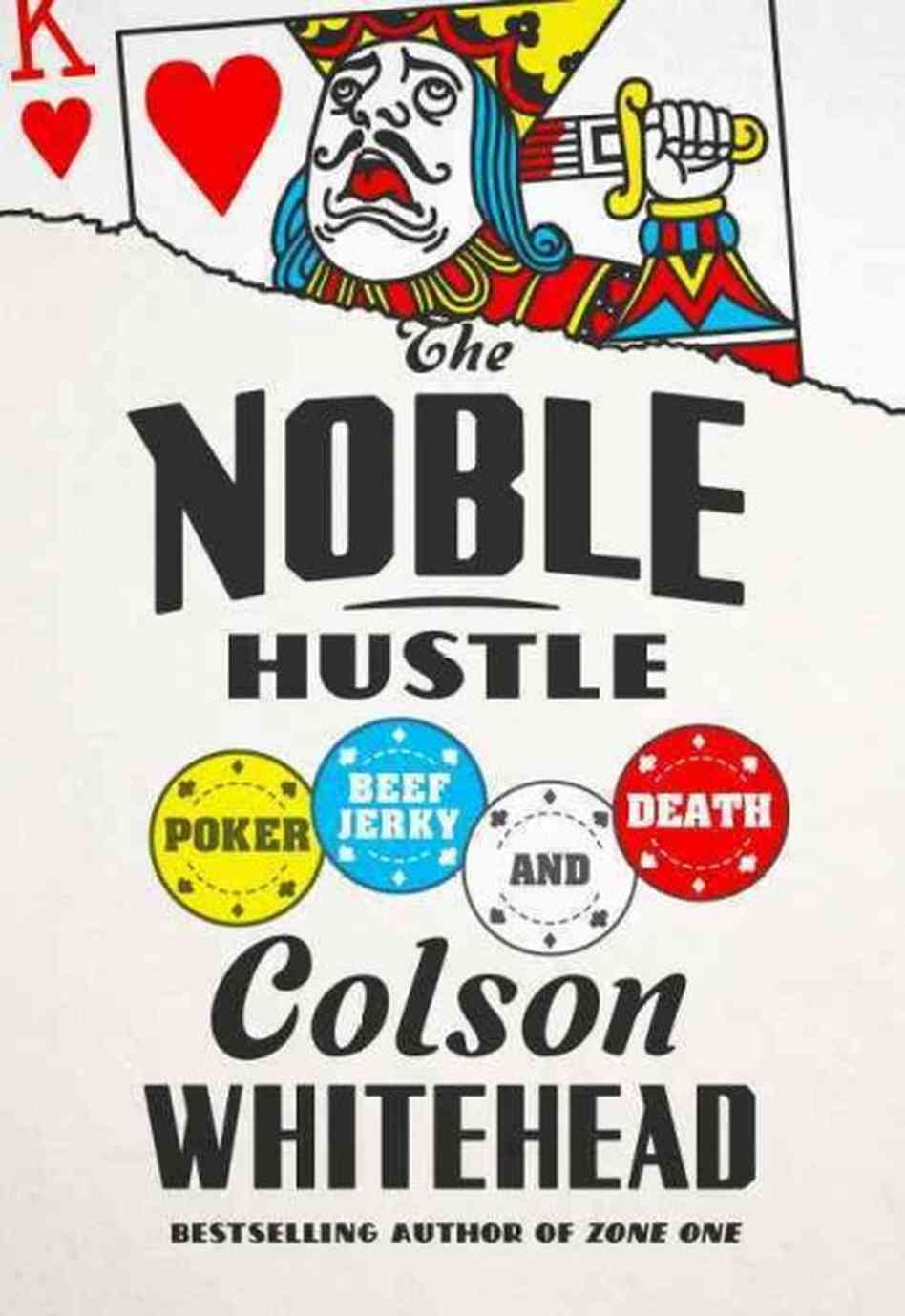Colson Whitehead will be 45 this year, and his latest book invites readers along on a midlife road trip, “The Noble Hustle: Poker, Beef Jerky and Death.” It’s a jaunty, discursive ride from a man whose first novel triumphantly, improbably featured elevator inspectors (“The Intuitionists”) and his second (“John Henry Days”) snagged an Anisfield-Wolf award in 2002.
The new book is nonfiction, the outgrowth of a Grantland assignment. An editor staked Whitehead in the 2011 World Series of Poker after learning that the virtuoso writer enjoyed a regular poker game in Brooklyn. The online magazine, part of the ESPN empire, paid Whitehead’s entry fee of almost $10,000 and assured him that he could keep any winnings. Rodrigo Corral’s jacket design for “The Noble Hustle”—the King of Hearts plunging a bloody knife into his own neck—hints that it didn’t go well.
So does Whitehead’s first sentence: “I have a good poker face because I am half dead inside.” He is still in the same paragraph when he dispatches the cliché that hangs over every card game: “You make the best of the hand you’re dealt.” On the next page, Whitehead informs us that he was newly divorced when Grantland called, but he doesn’t linger. Crisply, our beleaguered memoirist writes that “one of the overlooked benefits of joint custody is that you’re going to go max thirty-six hours until someone discovers your decomposing body. ‘Anyone seen him? He was supposed to pick her up after school.’”
We seem to be in an era of humiliation humor—Gary Shteyngart, Sam Lipsyte, Louis C.K.—but Whitehead borrows the mantle lightly. A lot of chortling awaits the reader of this dispatch from the “Leisure Industrial Complex.” Whitehead takes the Greyhound from NYC to Atlantic City to limber up his amateur game.
During his first, low-stakes tournament, Whitehead makes it to the final table, where “the other castaway was an elderly white man who bent over his chips, squinting through a magnifying attachment that barnacled on his thick specs like a jeweler’s loupe. He pondered before acting, as if reviewing a lifetime of hands and confrontations, or fighting off a nap. Sometimes you have to accept a casino trip for what it really is: an opportunity to see old people.”
The author preps for his Las Vegas days with a stack of poker books, a coach, a yoga instructor—the breathing exercises turn out to be clutch. He buys a red track suit, which he customizes with lightning bolts and the nebbish-y, Woody Allen-like script “Republic of Anhedonia.” He defines the word for readers before chapter one: the inability to experience pleasure. (“I was a skinny guy but I was morbidly obese with doom.”) He selects the sunglasses he will wear indoors.
Our warrior had hit Vegas before, in 1991—as a newly minted Harvard graduate on a cross-country trek with a couple of buddies. They crashed in a “grim box” of a hotel, without a proper casino, but Whitehead dropped his nickel into a slot machine anyway and won $2: “In a dank utility room deep in the subbasements of my personality, a little man whipped his hands on his overalls and pulled a switch: More.”
With one amusing sentence, Whitehead has conjured the stirrings of addiction. In his own life, and in “The Noble Hustle,” he doesn’t take it much farther. We do get a glimpse of a hyped-up stranger struggling to get back to the tables, calling out for a wheelchair, and Whitehead himself ponders the siren call of a stint on the circuit. But mostly we get jokes. And fine word-craft. And the agreeable ping of Whitehead’s observational abilities, bouncing off the felt in nimble, free association.
“The Noble Hustle” is fizzy, with just enough bite in its cultural acumen for us to shrug off the empty calories. The book won’t be the most important in the Whitehead oeuvre, but if it sends a batch of new readers to “The Intuitionists” and “Zone One” and “John Henry Days,” then that bloody King of Hearts will have done its work.



